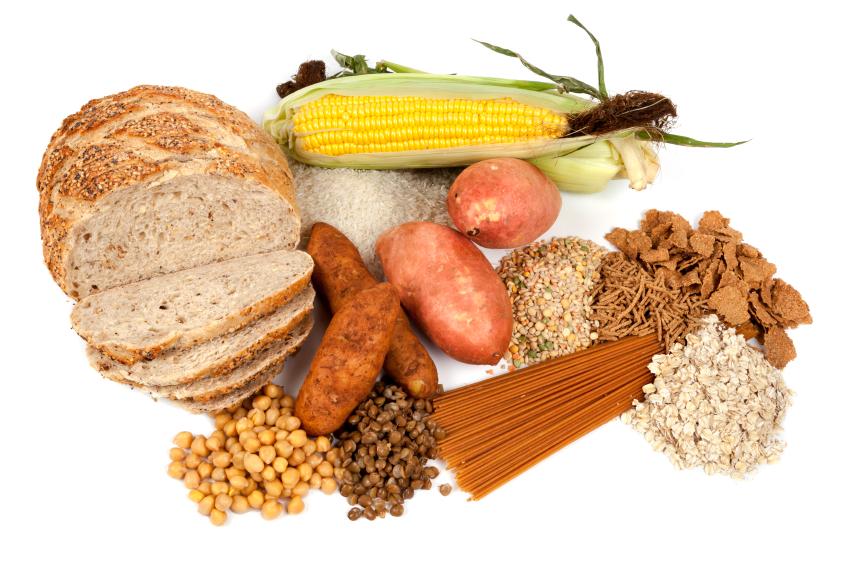Starches - The Good, the Bad and the Ugly

Starches…
Most of us love our starches and we usually eat plenty of them during the holiday season. Starches are complex carbohydrates that provide the body and gut bacteria with energy. It’s important to understand how many carbohydrates your body needs and that some types of starches are better than others.
Because I am not great at breaking down the exact number of carbohydrates that is needed meal by meal, I generally recommend to my patients that they keep their daily carbohydrate intake below 100 grams. However, there are times that more carbohydrates are needed, such as after an intense workout. Another exception is if we consistently eat the wrong foods, as it can lead to an overgrowth of gut bacteria and nonspecific GI complaints like bloating, gas or bowel changes. It can also cause weight gain and a feeling of chronic tiredness.
So, what constitutes a "good" starch? It should be:
- Low in glucose and fructose, the sugars commonly found in starches.
- Able to keep blood sugar level, as many starches cause swings in blood sugar.
- Low in anti-nutrients. These are toxic chemicals that plants and grains use to defend themselves against predators. When ingested, they can cause illness, allergies, autoimmune issues and mineral deficiencies. Examples of anti-nutrients typically found in carbohydrates include:
- Phytates, which are found in plants. They bind to calcium, zinc, magnesium and iron, and prevent the body from absorbing these minerals.
- Lectins, which include gluten and gluten-like compounds. They are grain-based chemicals that disrupt our guts. After the digestive process, lectins enter our bloodstream, where they wreak havoc, causing the aforementioned ailments plus more. I would much prefer that patients get their starch fix from cleaner sources of carbs than bread, pasta and cereal.
The Cleanest Carbs
- Pumpkins and squashes – are probably the best source of starch, as they are high in fiber and nutrients that function as a prebiotic, nourishing our gut bacteria. A healthier gut means a thinner, healthier you. Additionally, pumpkins and squash are low in fructose and free of anti-nutrients.
- Sweet potatoes - are low in fructose and high in antioxidants. Even eating the skin has been shown to improve blood sugar and cholesterol.
- Carrots – are free of anti-nutrients, low in fructose and high in carotenoids and polyactylenes, which have been shown to inhibit cancer growth.
- White rice - is a very low-sugar carbohydrate that is virtually free of anti-nutrients. Although white rice is practically void of any nutrients, it is actually healthier for you than other types of rice from the perspective that it is a better fuel source for your gut bacteria. Rice is naturally brown or black. During processing it’s stripped of its husk (oater coating), leaving a white grain. Although the husk has fiber and nutrients, it also contains allergens and anti-nutrients and is a source of resistance starch, which does not digest or absorb well in the small intestine and is used to improve the gut’s bacterial makeup.
Surprisingly Unhealthy Carbs
- Oats – are high in anti-nutrients, lectins and avenin, a protein fragment that behaves like gluten. Eggs would be a much better breakfast choice.
- Quinoa - can irritate the gut. Although it is gluten-free, which is good, it contains saponins. These soap-like chemicals can poke holes in the gut, leading to leaky gut syndrome. Although quinoa is commonly used as a vegan protein, it is actually a weak source of it, as it has tenfold less protein per serving than meat.
Pure Poison Carbs
- Wheat – has gluten, a destructive protein that spikes blood sugar and over time can cause silent problems including brain damage. It’s also addictive. The proteins in wheat break down into "gluteomorphins", a compound that behaves in the brain the same way morphine does.As a practitioner, I know first-hand that wheat can be addictive based on the reactions of patients when I tell them that they need to cut wheat out of their diet. They usually bargain with me by asking to cut back on wheat, but not completely remove it from their diet. They’ll try anything to avoid going without wheat. And, this makes sense because it truly is ADDICTIVE. If I told people they had to go without Brussels sprouts, I'm pretty sure the reaction wouldn't be the same.
What about Ezekiel bread? Since it’s sprouted, is it still considered unhealthy? Sprouting does reduce the anti-nutrient content of the grain. However, Ezekiel bread is a mix of four different grains and two types of legumes, each having a unique set of unhealthy properties that would require at two blogs to thoroughly discuss. Suffice it to say, the soy is very problematic and millet can lead to thyroid issues.


